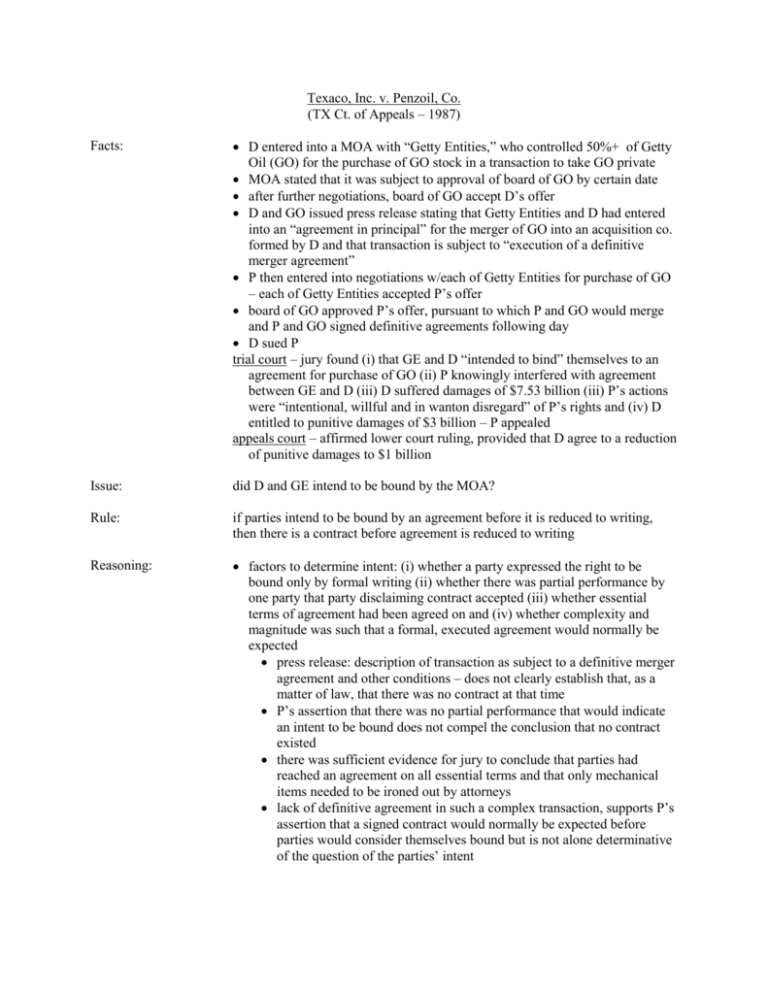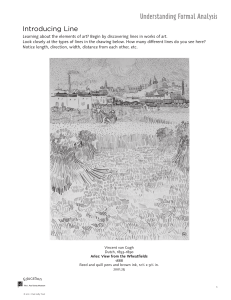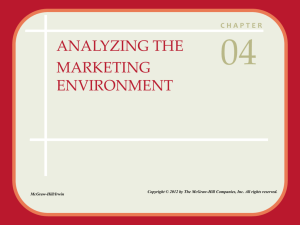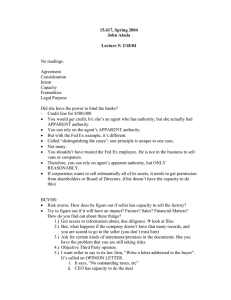Rule - ENGS.net
advertisement

Texaco, Inc. v. Penzoil, Co. (TX Ct. of Appeals – 1987) Facts: D entered into a MOA with “Getty Entities,” who controlled 50%+ of Getty Oil (GO) for the purchase of GO stock in a transaction to take GO private MOA stated that it was subject to approval of board of GO by certain date after further negotiations, board of GO accept D’s offer D and GO issued press release stating that Getty Entities and D had entered into an “agreement in principal” for the merger of GO into an acquisition co. formed by D and that transaction is subject to “execution of a definitive merger agreement” P then entered into negotiations w/each of Getty Entities for purchase of GO – each of Getty Entities accepted P’s offer board of GO approved P’s offer, pursuant to which P and GO would merge and P and GO signed definitive agreements following day D sued P trial court – jury found (i) that GE and D “intended to bind” themselves to an agreement for purchase of GO (ii) P knowingly interfered with agreement between GE and D (iii) D suffered damages of $7.53 billion (iii) P’s actions were “intentional, willful and in wanton disregard” of P’s rights and (iv) D entitled to punitive damages of $3 billion – P appealed appeals court – affirmed lower court ruling, provided that D agree to a reduction of punitive damages to $1 billion Issue: did D and GE intend to be bound by the MOA? Rule: if parties intend to be bound by an agreement before it is reduced to writing, then there is a contract before agreement is reduced to writing Reasoning: factors to determine intent: (i) whether a party expressed the right to be bound only by formal writing (ii) whether there was partial performance by one party that party disclaiming contract accepted (iii) whether essential terms of agreement had been agreed on and (iv) whether complexity and magnitude was such that a formal, executed agreement would normally be expected press release: description of transaction as subject to a definitive merger agreement and other conditions – does not clearly establish that, as a matter of law, that there was no contract at that time P’s assertion that there was no partial performance that would indicate an intent to be bound does not compel the conclusion that no contract existed there was sufficient evidence for jury to conclude that parties had reached an agreement on all essential terms and that only mechanical items needed to be ironed out by attorneys lack of definitive agreement in such a complex transaction, supports P’s assertion that a signed contract would normally be expected before parties would consider themselves bound but is not alone determinative of the question of the parties’ intent











